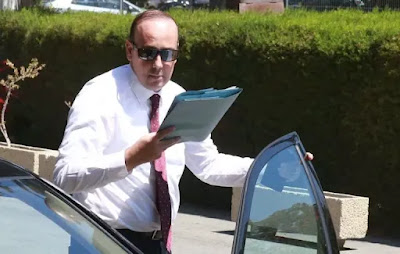Filenews 20 December 2024
Waste of €30 million. The Mayor of Pafos, Phedon Phedonos, denounces the Health Insurance Organisation, claiming that a single medical procedure, neurolysis, costs several million euros every year, while it should cost around €1 million every two years.
In the last two years, namely 2023 and 2024, Phedonos said, the HIO paid €30 million for neurolysis, the number of which also skyrocketed in the post-GHS era.
Specifically, as he said, "before the GHS, around 100 neurolysis were performed in Cyprus. In 2023, 4,500 were carried out through the GHS and in 2024, so far, 3,300. Each one costs the HIO €3,200".
The Mayor of Pafos also identifies waste in the prices at which the HIO secures the necessary consumables for neurolysis.
«They initially bought the needle for €1,200. Then, because some conscientious doctors intervened, they proceeded to a new procedure and bought the needle for €650. In Greece the same needle of the same company is bought €268".
In 2023, Mr. Phedonos continued, the HIO paid €17 million. for neurolysis, when the cost should not exceed €1 million".
The Mayor of Pafos described "some in the HIO as mediocre and incompetent" and launched an attack on a specific HIO officer whom he even challenged to respond to for the reason why immediately after his complaints he called an emergency meeting on this issue.
Speaking to Filenews, HIO Director Athos Tsinontidis admitted that "indeed the organization had noticed the increased number of neurolysis and indeed proceeded to a new negotiation for consumables and secured much lower prices".
The HIO, he said, "it goes without saying that it monitors very closely what is happening in the GHS and intervenes. For this reason, wherever certain phenomena are observed, restrictions and measures are introduced, while every month fines or other penalties are announced on providers, including hospitals, who do not follow either the protocols or the restrictions."
"For this particular case, the HIO had indeed observed the increased number of neurolysis and indeed proceeded to a new negotiation for consumables and secured much lower prices. If doctors report that they are under pressure from hospitals, we are not in a position to know about it unless the doctors themselves come to report it to us so that the necessary investigation can take place."
Mr. Tsinontidis, referring to the possibility of abuse in the performance of various medical procedures, surgical or invasive, said that "certainly the HIO records data. Let us not forget that the excessive use of services and the excessive provision of services were two of the most important concerns recorded in the first evaluation of the GHS. It must be said that in general the number of inpatient care operations is high. However, I would also like us to ask ourselves how we would react if the HIO told doctors that they cannot proceed to neurolysis in one of their patients when he meets the criteria of the relevant protocol. Wouldn't we say that the GHS does not serve its beneficiaries or restricts its providers/doctors?"
"We are not saying that what Mr. Phedonos denounces does not concern us. We are certainly concerned about this and we are constantly vigilant about abuses."
The HIO, he said, "will issue a statement giving further clarifications on the matter."
Regarding the press reports regarding the medical act of neurolysis, the Health Insurance Organization proceeded to clarifications and clarifies that it is carrying out checks and will take measures where necessary.
In detail, the announcement of the Health Insurance Organization:
Regarding media reports in relation to the medical act of neurolysis, the Health Insurance Organisation (HIO) wishes to clarify the following:
● Treatments included in the GHS, including neurolysis, are prescribed on the basis of therapeutic protocols followed by the treating physicians. This therapeutic intervention is used as a last line of treatment in patients suffering from neuropathic, musculoskeletal or cancer pain, do not respond to previous lines of treatment and meet specific criteria for which pre-approval is given by the Agency.
● The Organization checks providers for abusive or fraudulent acts and where abuse-fraud is confirmed, proceeds with the measures provided for through its Regulations.
● The Organization considers unacceptable, unfair and unfounded the targeting of its officers, who perform their duties professionally and responsibly, and declares that it will not tolerate the launching of unsubstantiated accusations against them.
● Any complaints or data that assist the Agency's work in combating abuse and fraud are expected to be brought before it. The Agency has the tools to thoroughly investigate all complaints on the basis of strict rules of impartiality.
● The Agency will proceed to an ex officio investigation of the relevant reports and will take action if and when necessary.
Finally, the Organization assures that it remains committed to the provision of quality healthcare services and the protection of the public interest in full respect of the principles governing the operation of the GHS.
